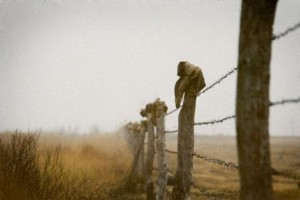 Almost every farm and ranch supply store offers multiple types of wire fencing to meet basically any fencing need you may have, whether the fence is meant to keep livestock in, keep predators out, or simply to mark the perimeters of your property. If you’re in market for a wire fence, consider the many different types and sizes of wire fencing available, and also research and ask around to find out exactly what type of wire fence would benefit your specific needs.
Almost every farm and ranch supply store offers multiple types of wire fencing to meet basically any fencing need you may have, whether the fence is meant to keep livestock in, keep predators out, or simply to mark the perimeters of your property. If you’re in market for a wire fence, consider the many different types and sizes of wire fencing available, and also research and ask around to find out exactly what type of wire fence would benefit your specific needs.
Common wire fence types include galvanized wire mesh, PVC coated hex wire, fixed knot field wire, barbed and non-barbed wire, high tensile smooth wire and welded wire panels. There are also wire fencing options available that are specifically designed to keep birds, foxes, deer, rabbits and other pests out.
Galvanized Wire Mesh
Galvanized wire mesh comes in a variety of diameters, heights and gauges, including 14 gauge, 16 gauge, 19 gauge, 20 gauge, 22 gauge, 23 gauge, 24 gauge and so on.
This type of wire fencing typically comes in large rolls, ranging from 10 feet to 50 feet to 100 feet long.
PVC Coated Hex Wire
The PVC coating on this type of fencing is applied after galvanizing, and it protects the wire from rust and rot even after years of exposure to the sun and the elements, providing great durability and versatility.
PVC coated hex wire is ideal for containing livestock and poultry, as well as keeping out birds and other unwanted pests.
Fixed Knot Field Wire
Fixed knot field wire fences are considered to last roughly three to four times longer than ordinary farm and ranch fences because the fixed knots do not slip, move or lose grip when subjected to pressure by livestock.
The fixed knots increase the vertical strength of the fence by including a separate wire piece wrapped tightly around the line wire and the stay wire. This allows for more space between posts, which reduces the cost of materials and construction.
Another benefit to the strength, durability and elasticity of fixed knot field wire fences is its ability to resist stretching.
Welded Wire Panels
Welded wire panels are great for livestock because the heavy duty wire rods are welded at every intersection, and then the panels are heavily galvanized with a thick zinc coating.
This type of wire fencing is great for hay stack protection, loafing areas, corrals, runs and pens, and stall dividers.
High Tensile Smooth Wire
High tensile smooth wire fencing comes in strands and can easily be used with electricity if desired.
The wires are flexible and can be bent, wrapped, tied and/or clamped. Advantages include low maintenance, low cost, long life, neat appearance and ease of use.
Barbed Wire
Barbed wire consists of one wire or a strand of wires with small, sharp and tightly twisted wire pieces attached in regular intervals.
There are also non-barbed wire fencing products available on the market. Non-barbed wire is perfect for sections of fence where strength is required but barbs are not needed. Non-barbed wire also helps prevent damage to prized livestock.



You must log in to post a comment.